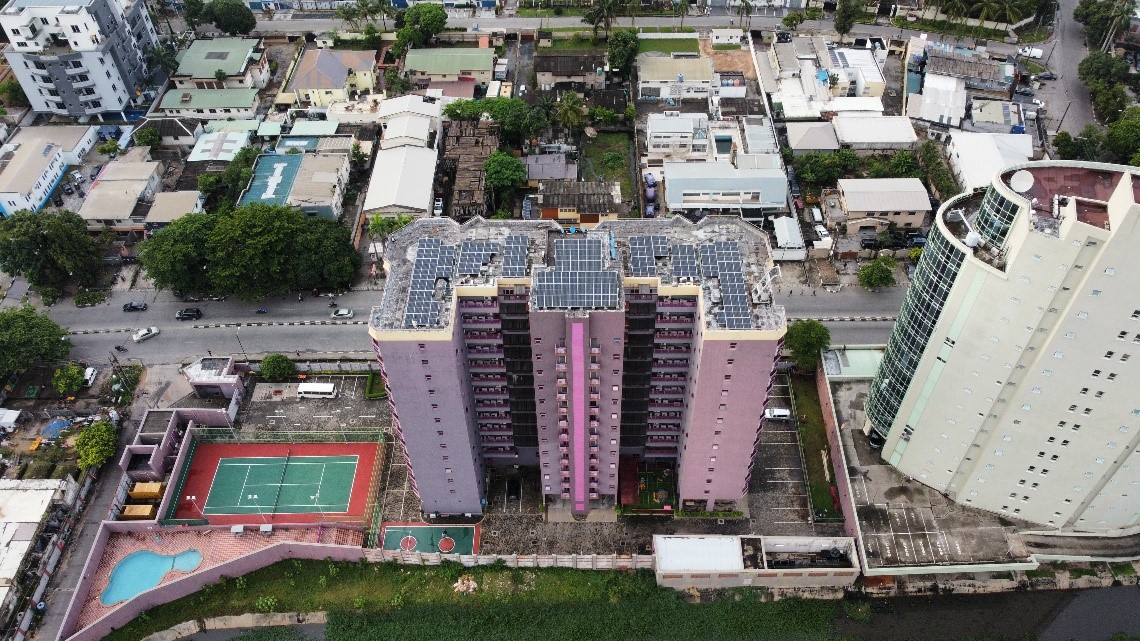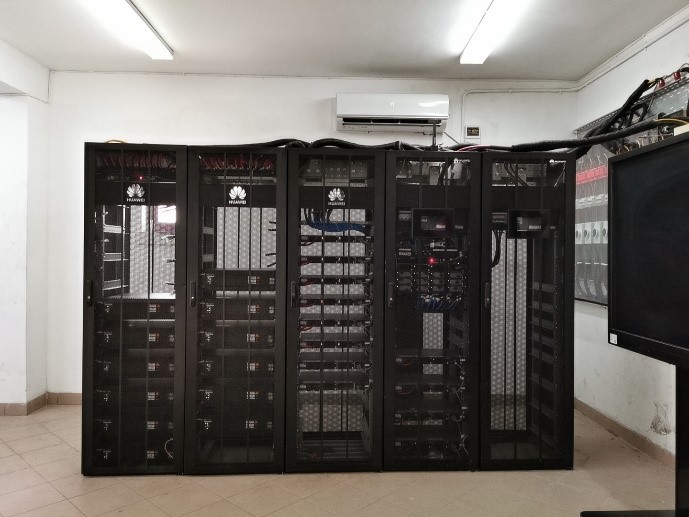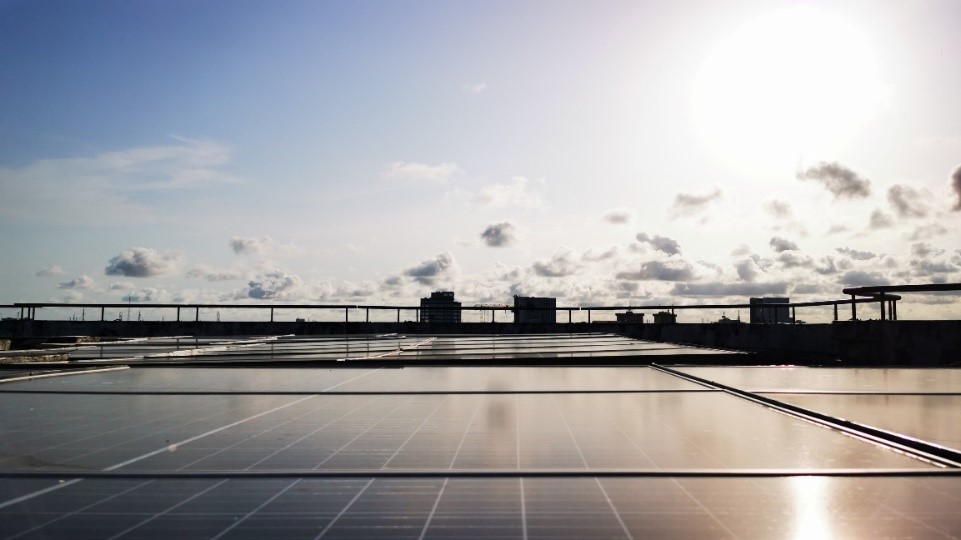In April of 2021, Huawei launched the iSitePower-S hybrid power solution in Nigeria. This solution provides economical, green, and reliable power supply for livelihoods and production in areas with poor or no mains supply, improving the working conditions and living environment for local people.
Soon after the launch, Huawei deployed the iSitePower-S hybrid power solution in a local campus. The solution enables efficient switching between the solar power system and intelligent lithium battery energy storage system, shortening the genset runtime and reducing genset power generation costs and carbon emissions. Genset power generation is polluting, unreliable, and costly. By shortening the genset runtime, the solution addresses these issues and improves the living and working experience on the campus. It can be replicated and promoted as a green low-carbon campus solution that allows greater access to green and inclusive power supply through large-scale application.

The iSitePower-S hybrid power solution used at the campus consists of 160 PV modules, high-density iMagicPower, CloudLi smart lithium batteries, and an intelligent energy scheduling system. The solution is easy to deploy thanks to its modular design, and equipment is transported and installed without the use of large-scale machinery, requiring just a single week to complete installation, commissioning, and service rollout.


The solution uses an innovative eMIMO technical architecture to support efficient and intelligent power generation, conversion, distribution, and consumption, delivering 20% higher energy yields than a traditional solar solution. Huawei's fifth-generation CloudLi offers enhanced performance and prolonged service life, reducing energy storage costs compared with traditional lithium batteries and lead-acid batteries.
The iSitePower-S connects to an energy cloud management system to implement remote visualized management, which includes real time information about energy yields, fuel consumption, and lithium battery health, minimizing the need for onsite maintenance and facilitating O&M.
According to operation data, the solar energy yield is approximately 303 kWh each day, and the estimated annual yield is expected to reach 110 MWh. Carbon emissions will be reduced by 52 tons, and the genset OPEX will be cut by US$20,000 each year.

Following the successful deployment of the solution, the campus has abandoned using gensets as the primary power source and embraced an all-new power consumption experience. According to staff of the campus, they are no longer inconvenienced by genset noise and feel assured by a new power supply system capable of providing a 24/7 stable power supply.
Huawei is committed to bridging the energy divide through technological innovation and actively responding to the global goal of carbon neutrality with its constant contributions to energy conservation and emission reduction. Currently, more than 1200 Huawei employees are operating in Nigeria to support local power development. In the future, Huawei will continue its policy of innovation and cooperation, and leverage leading energy technologies to provide a green and inclusive power supply for schools, hospitals, banks, factories, and other scenarios in order to successfully bridge the energy divide.











